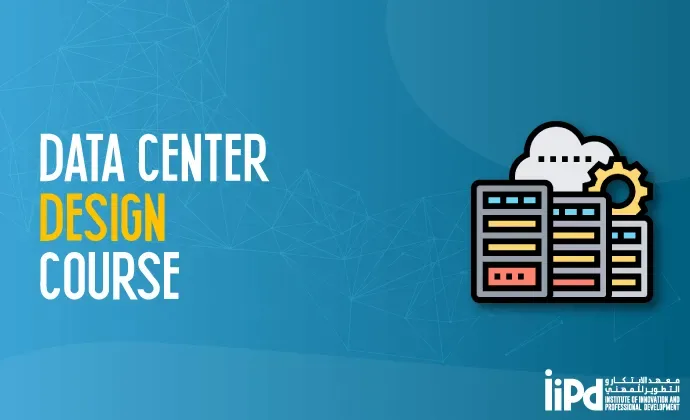
Course Details
Master the art of data center design and planning with this comprehensive course!
This program delves into the core principles of data center design, equipping you with the knowledge and skills to create efficient, scalable, and secure data center environments.
Through a blend of theory and practical insights, you'll gain a thorough understanding of:
- Data Center Fundamentals: Grasp the core concepts and functions of data centers, and their critical role in today's digital landscape.
- Data Center Standards: Immerse yourself in industry-leading data center standards, ensuring your designs comply with best practices.
- Design Principles: Master the fundamental principles of data center design, encompassing internal environment considerations, cabinet selection, and power distribution.
- Data Center Cable Management: Learn the art of effective cable management, from choosing the right cables and topologies to planning for future growth and scalability.
Who Should Attend?
This course caters to a broad audience of professionals involved in the design, implementation, and management of data centers, including:
- Designers
- Engineers (all disciplines)
- Managers
- Team leaders
- Supervisors
- IT Heads
Prerequisites:
Telecommunication and Electrical Knowledge
Data Center Introduction
- Brief History
- The Data Center Stack
- Hierarchal Model
- Types of Data Center
Data Center Infrastructure Standards
- ISO/IEC 24764
- TIA 942
- EN50173-5
- Data Center Tiers
Space Planning
- Overall facility capacity
- Power Systems
- Cooling capacity
- Datacenter supporting spaces
- Non-it equipment on the access floor
- IT equipment placement in a computer room with an access floor
- Network architecture
Site Selections
- Introduction
- Natural environment
- Utility environment
- Transportation
- Regulations (local, regional, federal)
- Location environment
Architectural
- Facilities planning
- General design concepts
- Design for efficiency
- General paths of access
- Programming detail
- Construction components
Structural
- Code compliance and coordination
- Impact of site location on implementation of standards
- Types of loading on the structure
- Structural concerns specific to data center design
Electrical Systems
- Overview
- Utility service
- Distribution
- Mechanical equipment support
- Uninterruptible power supply (ups) systems
- UPS Types
- UPS Power Calculations
- Standby and emergency power systems
- Automation and Control
- Lighting
- Bonding and grounding
- Labeling and signage
- Testing and quality assurance
Mechanical
- Code compliance and coordination
- Terminology differences between codes and telecommunications standards
- Environmental conditions
- Thermal management
- Mechanical equipment (design and operation)
- Materials and finishes
- Referenced standards and documents
Fire Protection
- Introduction
- Basic design elements
- General requirements and recommendations
- Enclosures - walls, floors, and ceilings
- Handheld fire extinguishers
- Fire protection
- Fire detection
- Labeling and signage
- Testing and quality assurance
- Ongoing operations
Security
- General
- Physical security plan
- Risk and threat assessment
- Regulatory requirements and legislation
- Data center security plan
- Crime prevention through environment design
- Access control
- Alarms
- Surveillance
- Barriers
- Lighting
- Disaster recovery
- Building site considerations
Building Automation Systems
- Introduction
- Components
- Cabling design considerations
Telecommunications
- Access providers and outside plant
- Telecommunications spaces
- Telecommunications and computer cabinets and racks
- Telecommunications cabling pathways
- Telecommunications cabling
- Field testing data center telecommunications cabling
- Telecommunications cabling, pathways, and spaces administration
- Telecommunications infrastructure classes
Cabling
- Copper Cabling
- CAT6A, CAT7, CAT8
- Pre-terminated Cables
- Fiber Optic Cabling
- High-Density Fiber
- MPO / MTP Cabling
- Intelligent Patch Panels
- Real-Time Monitoring
Access Control & Surveillance
- Fingerprint, Pass Code Devices
- Face Detection
- CCTV and IP Camera Systems
Conclusion:
Become a data center design specialist! This course equips you with the expertise to design and plan data centers that meet the critical needs of today's demanding IT infrastructure. Sharpen your skills and take your career to the next level!








